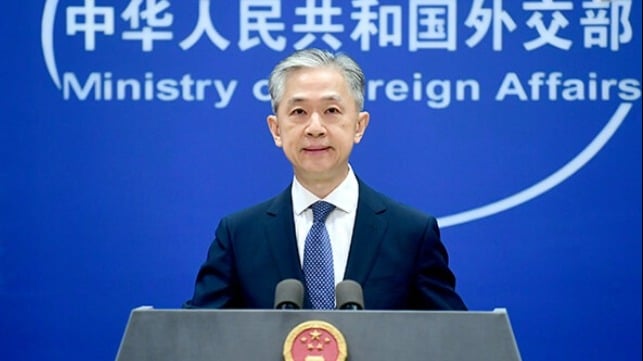China Raises Stakes With Broad Claim to the Taiwan Strait

The government of China appears to have upgraded its claim to ownership over the waters of the Taiwan Strait. In recent months, Chinese officials have told the Biden administration to cease and desist from the longstanding U.S. practice of warship transits through the strait - not just because the U.S. Navy's presence is undesirable to China, but because these waters are now part of China's territorial seas. Up until recently, China has only claimed the strait's waters as part of the Chinese EEZ during diplomatic talks, officials told Bloomberg.
In comments Monday, Chinese foreign ministry spokesman Wang Wenbin appeared to confirm this new stance. At a scheduled briefing, he told reporters that while the strait is divided up into various zones, the entirety falls under Chinese control.
"China enjoys sovereign rights and jurisdiction over the Taiwan Strait, while respecting the legitimate rights of other countries in the relevant maritime areas," Wenbin said. "There is no legal basis of 'international waters' in the international law of the sea. It is a false claim when certain countries call the Taiwan Strait 'international waters' in order to find a pretext for manipulating issues related to Taiwan and threatening China’s sovereignty and security."
The new language appears to push the boundary of China's territorial seas 70-200 nm beyond the UNCLOS treaty limit, and the pattern is consistent with Beijing's other maritime claims. China asserts that virtually all of the South China Sea is its own, citing a history of Chinese navigation in the region and a string of "straight baselines" connecting Chinese-occupied islands. These claims have not stood up to scrutiny in court: In 2016, the Permanent Court of Arbitration in the Hague ruled that China's "nine-dash line" claim is not consistent with international law. Chinese officials boycotted the proceedings and have forcefully declared that the final ruling is null and void.
China also claims the territory of independently-governed, democratic Taiwan as its own, and it vehemently objects to the concept of Taiwanese independence. Chinese President Xi Jinping has articulated a willingness to use force to reunify Taiwan with the mainland, if necessary, and similar warnings from his subordinates have prompted concern in the West that a cross-strait conflict may be likelier than ever.
At a security conference in Singapore last week, U.S. Secretary of Defense Lloyd Austin warned of a pattern of increasing Chinese military exercises near Taiwan, part of a broader trend that threatens to "undermine security, and stability, and prosperity in the Indo-Pacific."
“We’ve witnessed a steady increase in provocative and destabilizing military activity near Taiwan. That includes PLA aircraft flying near Taiwan in record numbers in recent months – and on a nearly daily basis,” Austin said.

that matters most
Get the latest maritime news delivered to your inbox daily.
Chinese defense minister Wei Fenghe fired back on Sunday, defending China's actions and accusing the U.S. of interference in its affairs.
"For the sake of unification, the United States fought the war between North and South. China is most unwilling to go through a civil war like that, but will resolutely smash any schemes for Taiwan independence," Wei said. "If anyone dares to split off Taiwan, we will not hesitate to fight, will not flinch from the cost, and will fight to the very end."
